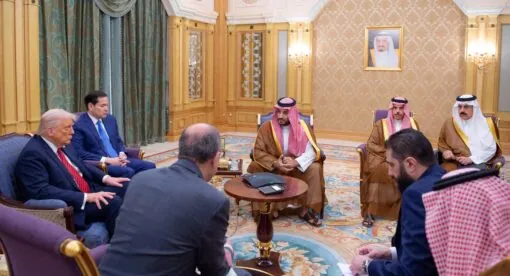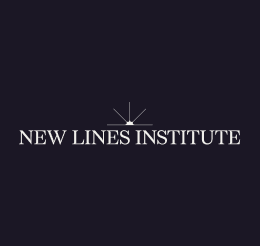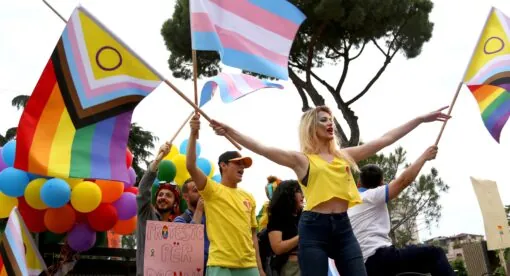Health diplomacy has been dismissed by populist governments in recent years as costly and unnecessary. However, reinforcing health diplomacy during the pandemic is a way to re-establish much diminished and sorely missed U.S leadership and cooperation – for the benefit of both Americans and the world. Simply put, Americans will never be safe from COVID-19 until it is under control both at home and abroad.
In addition to promoting domestic and global health, reinforcing health diplomacy would protect the economy and national security. Given the United States’ economic clout and public health capacity, reinforcing health diplomacy is primarily a matter of political will. Policymakers should consider the value of health diplomacy for responding to COVID-19 and other public health threats, including in protracted conflicts that have long eluded resolution such as between Palestinians and Israel.
The Benefits of Health Diplomacy
In humanitarian settings, health diplomacy has sometimes produced a cessation of hostilities – for example, “Days of Tranquillity” for vaccination campaigns. On a larger scale, the U.N. secretary general and UNICEF called for a global cease-fire to allow for the continuation of health, water, and other basic services throughout the COVID-19 pandemic. This effort failed – in large part due to American intransigence. In the global policy arena, “America First” policies have been pushed so stridently that even traditional allies such as the European Union and institutions in which the United States has long been engaged such as the World Health Organization (WHO) and the United Nations Relief and Works Agency for Palestine Refugees (UNRWA) have been pushed aside – the former being accused of failing to lead an effective response to the pandemic and the latter for being perceived as an obstacle to reaching a “deal of the century” agreement between Israel and Palestinian counterparts. While both organizations have their respective issues, the services they provide are critical. Therefore, these hard-line policies have more to do with U.S. leadership and foreign policy shortcomings than the respective flaws of each organization.
Health diplomacy has been used by prior U.S. administrations, both Republican and Democratic, to strengthen international connections while addressing health issues of mutual concern. Historically, the United States and the Soviet Union cooperated on infectious diseases such as smallpox and polio. After the dissolution of the Soviet Union, the United States continued to work with Russia and other post-Soviet states on a range of health issues – including supporting former bioweapons scientists to apply their skills for civilian purposes through the Biotechnology Engagement Program and other channels. Although the Trump administration has undermined health diplomacy as a tool for international engagement, it should be bolstered – especially given that the United States has become a cautionary tale rather than a global leader in the pandemic response. While the United States struggles with a quarter of confirmed cases worldwide, China is stepping into the leadership vacuum – including by increasing its funding to the WHO and providing personal protective equipment and testing kits around the world while the United States scrambles to secure enough for its own needs. Doing so allows China to burnish its image, increase its influence in international institutions, and leverage partner countries in need of foreign assistance. The United States remains heavily invested in vaccine research, although it is unclear whether it would favor “vaccine nationalism” over a coordinated global response.
A Shared Foe
Progress can be made in the health sector without a comprehensive political agreement. Even with growing tensions, health diplomacy between Palestinians and Israelis may be a rare issue that can bring adversaries together to confront a shared foe: the pandemic. The United States could best demonstrate its leadership by partnering with UNRWA, strengthening rather than marginalizing the WHO, and leveraging the skills and experiences of U.S. government health specialists within the Centers for Disease Control and Prevention (CDC) and the U.S. Agency for International Development (USAID).
Why is it in the interest of the United States to promote health diplomacy between Israelis and Palestinians? First, it reduces suffering in a tense region where the potential for increased conflict is always present. Second, it demonstrates a willingness to take into account the needs of Palestinians, which could minimize ill will generated by Washington’s being widely perceived as overly deferential to Israel. In short, improving health outcomes can contribute to peace and stability, which is in the best interest of all parties.

Cases are surging in both Israel and the Palestinian Territories. According to the WHO, as of July 30 there have been 14,763 confirmed cases in the West Bank and 75 in Gaza, as compared to 69,603 in Israel with its stronger health care system. The WHO further notes that the number of people testing positive for COVID-19 continues to increase in the West Bank, with an average of 402 new cases per day since July 1.
The Israeli government, initially praised for its aggressive response to COVID-19 from February to May, has since come under increasing domestic criticism due to a sharp rise in cases and unemployment – primarily because of the premature re-opening of the economy. The Israeli government has paid a political price, evidenced by large, ongoing protests against the mishandling of coronavirus response, economic mismanagement, and corruption. A result of Israel’s political instability is the initial delay and ultimate cancellation of the proposed illegal annexation in the West Bank and the Jordan Valley.
According to the WHO, the number of people testing positive for COVID-19 continues to surge in the West Bank. Vulnerability is highest in the Gaza Strip, but the much lower number of confirmed cases there can be attributed to a fragile health care system and testing limitations. To illustrate, the WHO reports that as of July 30, 194,354 laboratory samples have been tested for COVID-19, with just 13,900 samples tested in the Gaza Strip. For an effective response, health care providers need tools and training to collect, analyze, and use reliable data for programs and policies. The engagement of the international community, and especially the WHO, is useful for Israelis and Palestinians alike, given that both populations are dealing with major increases.

The Gaza Strip has been sealed off since 2007, when Hamas became the de facto authority. Hamas is designated as a terrorist group by the United States and many other major donors, which limits support and engagement that can be provided in Gaza. Due to restrictions by Israel and Egypt, its 2 million residents cannot leave by air or sea, and departures by land are strictly limited to “exceptional humanitarian cases.” While neither Israel nor Egypt wants weapons or funding reaching Hamas, the negative consequences of the blockade on the health and well-being of Gazans have been both profoundly detrimental and extensively documented.
Clean water is unavailable for 95% of the population, power shortages affect both the economy and delivery of health and other basic services, and given the high population density and inability to flee no matter how intense the hostilities, civilians bear the brunt of any conflict. It must be noted that a complicating factor for health diplomacy is the Hamas policy that communication with Israelis promotes “normalization” of the occupation. At the same time, Gaza cannot be accessed without communication and coordination with Israel, which requires humanitarian actors to tread carefully in maintaining communication.
Broad but less-severe restrictions apply to the movement of more than 2.5 million Palestinians living in the occupied West Bank (excluding East Jerusalem). These include obtaining permits to enter Israel, parts of the West Bank, and East Jerusalem as well as areas taken over by settlements or the Israeli military. Even with permits, Palestinians must navigate checkpoints and roadblocks, which is costly in terms of time and health outcomes.

Health diplomacy need not be direct. Both the WHO and UNRWA operate in Gaza and can serve as intermediaries – sharing information, providing technical support, and facilitating agreements. While the Trump administration has taken a hard line on both these organizations, extensive relationships still exist between the U.S. government, UNRWA, and WHO that could still be tapped in support of this effort even in the absence of funding.
A small number of international NGOs are able to work in Gaza. No organization present there can ignore Hamas, but they remain useful alternatives for reaching vulnerable Palestinians with much-needed health services. The WHO has procured testing kits for the West Bank and Gaza and supports the authorities in scaling up their testing capacity to identify, isolate, and trace people with COVID-19. Their ability to continue doing so depends in large part on the support of donors. Defunding the WHO places the health of both Palestinians and Israelis at risk.
Political Considerations
In addition to the health implications, there are important political considerations. Neither the United States nor Israel would want to see the collapse of the beleaguered Palestinian Authority, which would empower Hamas. Any major adjustments to their role and relationship with Israel will certainly have an impact on regional stability. While unlikely, the collapse of Hamas in the Gaza Strip could produce chaos or replacement by more extreme groups that also operate in Gaza.
Sami Moubayed wrote in a recent Newlines Institute brief that in Lebanon the pandemic has provided Hezbollah an opportunity to broaden its support by providing health services not just to Shiites but to all Lebanese. It has accomplished this by mobilizing its expansive network of health care facilities and providers, working closely with the Ministry of Health. In the context of the pandemic and subsequent economic collapse in Lebanon, Moubayed emphasizes that the profile of health services, and those who provide them, has increased dramatically. Lebanon is a cautionary tale for countries in which non-state actors are significant providers of health, education, and other basic services.
The Coordinator of Government Activities in the Palestinian Territories is the component of the Israeli Defense Ministry that liaises with Palestinians and controls the commodities that enter the territories. It recently allowed a Polymerase Chain Reaction machine donated by an American charity into Gaza that makes “gold standard” testing possible, provided the laboratories have consistent electrical supply (not a given considering fuel shortages) and staff are trained on its proper usage. The U.S. government, primarily though USAID and the CDC, has extensive experience working with partners in challenging settings such as this – if allowed to do so, the guidance and technical support of specialists could reinforce health diplomacy through dialogue, training, and other forms of (mostly remote) support. The involvement of these specialists would benefit Israelis, Palestinians, and the broader region, which is strategically important to the United States.
Israel has admitted some Palestinians from the West Bank for treatment, but even prior to the second wave of the pandemic, authorities were wary of over-burdening the Israeli health care system. These opportunities are now likely to be restricted even further. If that is the case, building the capacity of Palestinian health care facilities and providers becomes even more important. Ensuring a regular supply of personal protective equipment and facilitating the flow of health commodities are important elements of the global response. Prior to the normalization of relations between the United Arab Emirates and Israel, Israel cleared two flights of commodities from the UAE – the first commercial flights between the two countries. While the UAE coordinated the delivery of assistance extensively with Israel, the Palestinian Authority felt that they were inadequately consulted, illustrating the complexities of responding while needing to coordinate with a country that blockades the Gaza Strip and Hamas, which refuses direct communication as a result.
The Trump administration, which had previously cut all funding to the Palestinian Authority, made a $5 million contribution through the USAID Office of Foreign Disaster Assisance to fund COVID-19 response, specifically earmarked for West Bank hospitals even though channels for assistance to Gaza exist. By way of comparison, the United States pledged $364 million through the U.S. State Department Bureau of Population, Refugees and Migration to UNRWA in 2017 for activities throughout its areas of operation – West Bank, Gaza, Lebanon, Jordan, and Syria. While the funding for West Bank hospitals is insignificant given the threat posed by COVID-19, it at least acknowledges that the Palestinians have unmet health needs related to the pandemic.
The pandemic-related needs of the West Bank and Gaza have been highlighted by some members of Congress. In May, U.S. Reps. Rashida Tlaib and Alan Lowenthal, a Palestinian-American and Jewish-American respectively, called for the Trump administration to release funds appropriated by Congress to support the well-being of the Palestinian people. As they put it, “The impact of the pandemic spreading throughout the West Bank and Gaza would be, first and foremost, a humanitarian catastrophe and a moral failure. It would also profoundly threaten the prospects for a just and lasting peace, and the stability of the entire region.” The possibility exists to cultivate awareness and engagement in Congress even if the results of doing so depend upon either a new approach or a new administration.
Health care providers, respected by Israelis and Palestinians alike, can be advocates for change. According to the Washington Post, Israeli hospitals are known as one of the country’s few cultural crossroads, where everyone from Jewish settlers to Palestinian activists come to seek nationalized health care and receive it from providers, including those of Arab descent. A recent video series highlights the contributions of Arab nurses and doctors in Israel. Cooperation between Israeli and Palestinian health care facilities and providers will not solve the conflict, but with WHO support, it can benefit all parties.
In politics, there are always risks in negotiating agreements. While health diplomacy can open and maintain channels of communication, sidelining critical partners like the Palestinian Authority, whether it be during the period of potential annexation, or in the current period when annexation has been taken off the table, is problematic. This is particularly important during the COVID pandemic, and if the Palestinian Authority does not provide critical services to affected Palestinian communities, it could exacerbate COVID-19 health concerns while increasing unrest. It is telling that the Palestinian Authority and Hamas, who can agree on little else, had jointly condemned the now defunct annexation plans.

Policy Recommendations
Going forward, the United States should demonstrate leadership through the following actions:
- Partner with the WHO: Eliminating U.S. funding and politicizing engagement with the WHO has compromised the global pandemic response, including in strategically important regions. Ideally, the United States would reinstate funding for WHO given its leadership and coordination role. Until such a time as the funding relationship is restored, the United States should continue to engage the WHO diplomatically and make use of its ability to talk to all parties in this and other conflicts.
- Consider All Channels for Assistance in Gaza: UNRWA is one of the few organizations capable of providing support to Palestinians in Gaza. Until such a time as UNRWA’s funding is fully restored, this administration should in the interim release funding for COVID-19 related activities in UNRWA’s areas of operation, including the West Bank and Gaza, as a humanitarian gesture. International NGOs with an established track record of working effectively in Gaza should also be considered. This will demonstrate U.S. concern for Palestinians in both the West Bank and Gaza, furthering its ability to engage on a range of issues related to the conflict.
- Expand support to health facilities throughout the West Bank and Gaza: The United States should use health diplomacy to provide remote technical assistance to UNRWA, support WHO in building bridges between Israeli and Palestinian health care providers and facilities, and work with international NGOs, with an emphasis on improving detection and response.
- Leverage U.S. Health Capacity in Support of the Response: The United States should, draw on its long history of supporting infectious disease preparedness and response programs throughout the world to work with both Israeli and Palestinian health care providers and policymakers. This expertise primarily resides within USAID and the CDC, although other units within the U.S. Department of Health and Human Services may be able to provide technical assistance and support.
Unless the United States permanently cedes its role as a global leader to other world powers, it will need to again cooperate with allies and adversaries alike in addressing global threats, including the COVID-19 pandemic. Used correctly, health diplomacy brings opportunities to restore sorely tested relationships with traditional allies while opening channels of dialogue with adversaries. The Israeli-Palestinian conflict is a useful case study because of the strategic importance, clear humanitarian needs, and potential benefit to both parties. With the right partners and the political will to support them, the United States could demonstrate leadership here as well as in other conflict settings around the world.
Bryan Schaaf is a consultant based in Geneva with expertise in emergency response, monitoring and evaluation, and humanitarian diplomacy. He served as the Senior Humanitarian Advisor for the State Department Bureau of Population, Refugees and Migration and the USAID Office of Foreign Disaster Assistance respectively in Ukraine from 2016-2019.
The views expressed in this article are those of the author and not an official policy or position of the Newlines Institute.






